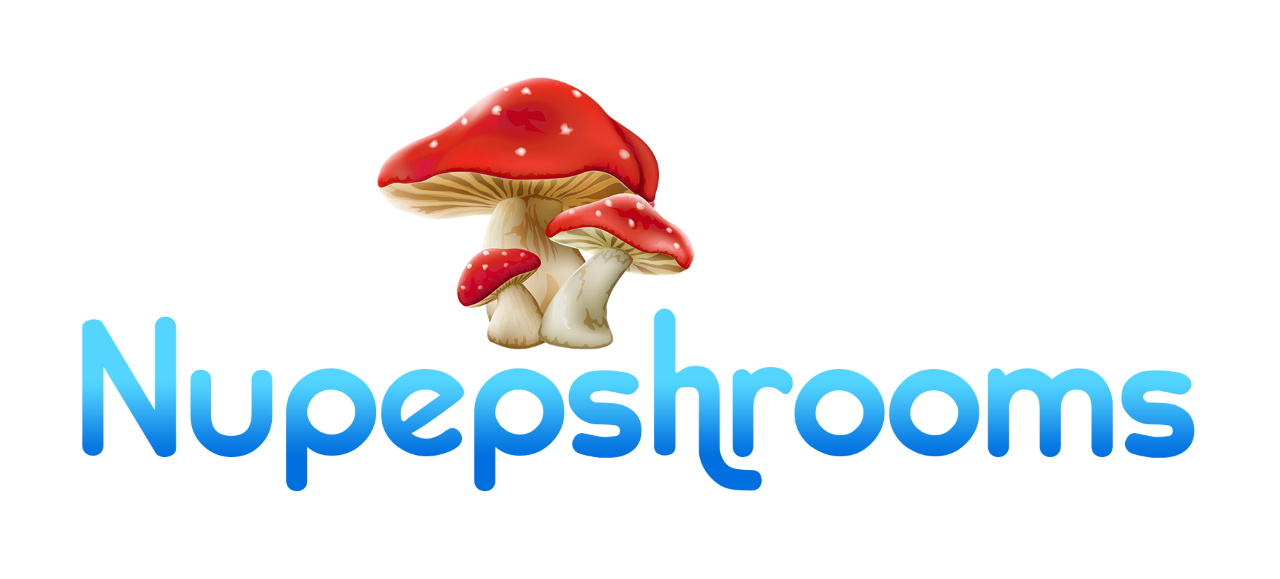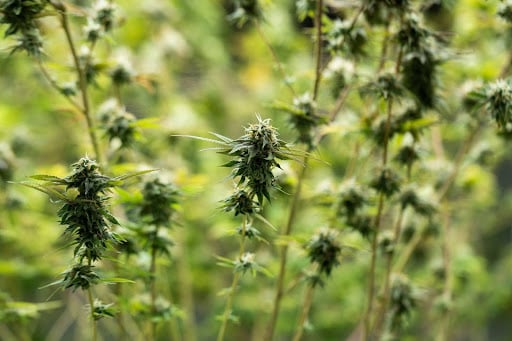Psychedelics
Is Weed a Psychedelic? Cannabis vs. Classic Psychedelics
As the popularity of cannabis continues to rise, many people are asking, “Is weed a psychedelic?” While marijuana and classic psychedelics like LSD and psilocybin mushrooms both alter perception, they affect the brain in different ways. Weed, primarily known for its psychoactive compound THC, induces a state of relaxation, euphoria, and altered sensory perception.
However, unlike traditional psychedelics, which often lead to profound changes in consciousness, cannabis typically produces milder effects. In this article, we explain the differences between cannabis and classic psychedelics, discuss their impacts on the brain, and help you understand whether weed falls into the psychedelic category.
What are Psychedelics?
Classic psychedelics, such as psilocybin mushrooms and LSD, are known for their ability to induce profound changes in perception, mood, and cognitive processes. These substances typically lead to hallucinogenic effects, including altered sensory perception, vivid imagery, and mystical experiences. Psychedelic medicine has gained attention for its potential therapeutic benefits, particularly in treating mental health conditions like depression, anxiety, and PTSD.
Is Weed a Psychedelic?
While cannabis has psychoactive properties due to its active compounds, primarily THC (tetrahydrocannabinol), it doesn’t fit neatly into the category of classic psychedelics. Substances like lysergic acid diethylamide (LSD), psilocybin mushrooms, and salvinorin are more commonly associated with profound alterations in perception and consciousness.
Cannabis and their cannabinoid profiles can produce hallucinogen-like effects in some users, particularly at larger doses or in specific contexts, but it generally doesn’t induce the same level of profound alteration found in classic psychedelics. Most users report subjective effects such as relaxation, euphoria, and altered sensory perception, but these do not typically include the intense hallucinatory effects often experienced with psychedelics.
Drugs that Offer Psychedelic Effects
When discussing substances that produce psychedelic effects, several drugs come to mind. These substances, often classified as psychedelic drugs, include:
- LSD (Lysergic Acid Diethylamide): A classic psychedelic known for its intense hallucinogenic effects and ability to alter perception and cognition.
- Psilocybin Mushrooms: Commonly known as magic mushrooms, these contain psilocybin, which is converted into psilocin in the body. This compound produces profound changes in consciousness and can lead to mystical experiences.
- DMT (Dimethyltryptamine): A powerful psychedelic that can produce intense experiences, often described as mystical or transcendent.
- Mescaline: Found in certain cacti, mescaline induces hallucinogenic effects similar to those of LSD and psilocybin.
- Ayahuasca: A traditional Amazonian brew that combines DMT with an MAOI (monoamine oxidase inhibitor), leading to intense psychedelic experiences.
Cannabis Vs. Psychedelics
In the realm of psychoactive drugs, the debate between cannabis and hallucinogenic drugs is gaining momentum. Understanding the physical effects of each can help you determine which option aligns with your needs.
Effects and Experiences
- Psychoactive Effects: Cannabis typically offers a more mellow and relaxing experience, while classic psychedelics can lead to profound psychedelic experiences, including visual hallucinations and altered perception of time and space.
- Duration: Cannabis effects may last a few hours, while psychedelics can have longer-lasting effects, often extending up to 12 hours or more, depending on the substance and dosage.
Therapeutic Use
- Medical Benefits: Both cannabis and psychedelics have been studied for their therapeutic potential. Cannabis has been shown to alleviate symptoms of chronic pain, anxiety, and nausea, while psychedelics like psilocybin have shown promise in treating conditions such as depression and PTSD.
- Research: Ongoing cannabis studies and clinical trials on psychedelics are expanding our understanding of these substances’ potential health benefits and risks.
Risks and Adverse Effects
- Adverse Reactions: Cannabis can lead to cannabis use disorder in some chronic cannabis users, with potential adverse health effects including anxiety, paranoia, and cognitive impairment, particularly in chronic users or those consuming heavy cannabis.
- Psychedelic Risks: While classic psychedelics are generally considered safe, they can also lead to challenging experiences and negative consequences, known as bad trips, which may involve anxiety and physiological distress.
- Legal Status: Whilst most psychedelics are still technically illegal, weed is legal on a federal level in Canada. The cannabis laws make it a more attractive option to many.
The choice between cannabis and psychedelics should consider these factors, and users should approach both with caution and informed decision-making.
THC Vs CBD: Which cannabis compound is right for you?
Benefits of Psychedelics
Psychedelics have garnered attention not just for their mind-altering properties but also for their potential benefits. Recent research has highlighted several areas where psychedelic substances can contribute positively to mental health:
- Mental Health Treatment: Psychedelics, particularly psilocybin and LSD, have shown promise in treating depression, anxiety, and PTSD. Clinical trials have demonstrated their ability to reduce symptoms and improve quality of life for participants suffering from these conditions.
- Enhanced Creativity: Some users report increased creativity and problem-solving abilities during and after psychedelic experiences, possibly due to the altered states of consciousness that expand thinking patterns.
- Spiritual Experiences: Many individuals who use psychedelics report mystical experiences that lead to enhanced feelings of connection and spirituality. These experiences can significantly impact users’ outlook on life, relationships, and personal well-being.
- Pain Relief: Emerging research suggests that certain psychedelics may offer analgesic properties, making them potential candidates for managing chronic pain conditions.
- Reduced Substance Use Disorders: There is evidence to suggest that psychedelics can help reduce reliance on addictive substances, including alcohol and nicotine, by fostering introspection and emotional healing.
The growing body of evidence supporting the benefits of psychedelics has prompted a re-evaluation of their potential in psychedelic medicine, highlighting the need for continued research.
Benefits of Weed
Exploring the benefits of weed reveals how the effects of cannabis may enhance both physical and mental well-being. From pain relief to stress reduction, recreational cannabis offers a range of advantages, making it a popular choice for those seeking relaxation and improved quality of life.
- Pain Management: Cannabis is widely regarded for its analgesic properties. Many patients use cannabis to manage chronic pain, including arthritis, migraines, and multiple sclerosis.
- Anxiety and Stress Relief: Many users report that cannabis helps alleviate anxiety and stress, making it a popular choice for relaxation and unwinding after a long day. However, individual responses may vary, and some may experience heightened anxiety with larger doses.
- Sleep Aid: Cannabis can improve sleep quality for individuals suffering from insomnia or other sleep disorders. The relaxing effects can promote better sleep onset and maintenance.
- Appetite Stimulation: Known as “the munchies,” cannabis can stimulate appetite, making it beneficial for those undergoing treatments that cause nausea and loss of appetite, such as chemotherapy.
- Neuroprotective Properties: Some studies suggest that cannabis constituents, particularly CBD (cannabidiol), may offer neuroprotective benefits, potentially helping conditions like epilepsy and multiple sclerosis.
Explore popular weed products online
The Relationship Between Cannabis Use and Psychedelics
The relationship between cannabis use and psychedelics is complex and multifaceted. Both substances interact with the brain’s neurotransmitter systems but in different ways. Cannabis primarily affects cannabinoid receptors, while psychedelics predominantly interact with serotonin receptors.
Combined Use
Some users combine cannabis with psychedelics to enhance their experiences, although this approach carries risks. The combination can intensify both the psychoactive effects of cannabis and the hallucinogenic effects of psychedelics, which may lead to overwhelming experiences, particularly for inexperienced users.
Cultural and Historical Context
Cannabis and psychedelics have been used in various cultures for millennia, often in spiritual or ceremonial contexts. Understanding this historical background can provide insights into the potential uses and benefits of both substances in modern society.
Buy Psychedelics and Cannabis Online
At NupepShrooms, we provide a diverse range of psychedelic products that cater to those looking to enhance their experimental sessions. Our carefully curated selection ensures that each customer can find what resonates with them, regardless of their experience level. We prioritize quality and safety for optimal experiences.
Our product range includes:
- Magic mushrooms
- Cannabis
- And More!

